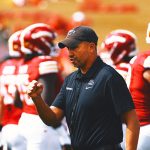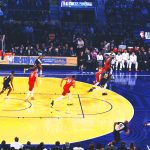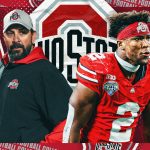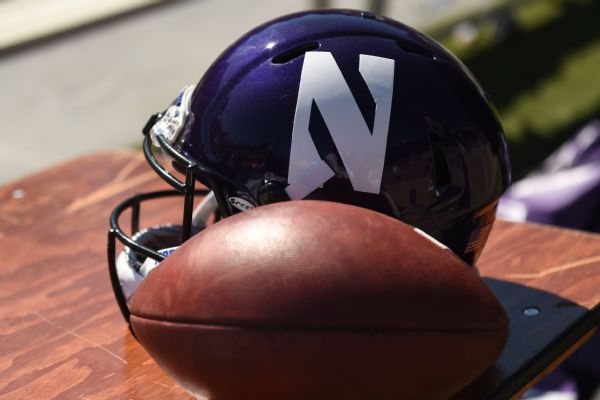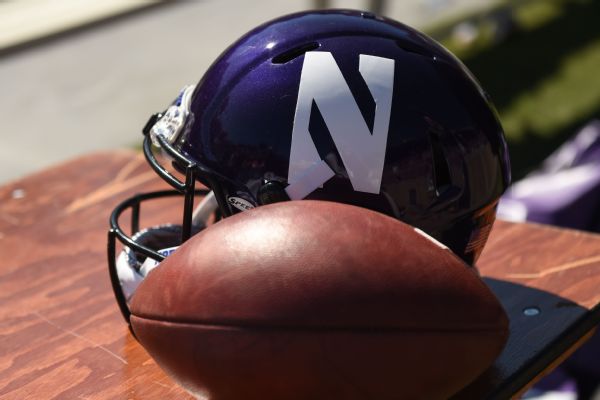
Former Northwestern football coach Pat Fitzgerald, university president Michael Schill and athletic director Derrick Gragg are listed as defendants in a lawsuit filed Tuesday morning by a former Wildcats player who said the program and its leaders were negligent in allowing hazing inside the team’s locker room.
The lawsuit also lists the university, its board of trustees and former president Morton Schapiro as defendants. The player filed anonymously, but the lawsuit says he was a member of the team from 2018 through 2022. His attorneys, Patrick Salvi and Parker Stinar, said they have spoken to other former Northwestern players and expect additional football players and Northwestern athletes from other sports to join the lawsuit in the coming days and weeks.
Stinar said he and Salvi represent numerous Northwestern football players and have spoken to roughly a dozen athletes who competed at the school in the past 15 years. He said the player who filed the lawsuit Tuesday was subjected to hazing that included sexualized acts and racial discrimination.
“As an incoming freshman, because freshmen were the most targeted for sexual harassment and hazing, it’s just such an intimidating process,” Stinar said. “It really makes you lose faith in the program and your coaches. It makes you lose the love of your sport. It makes you feel deceived that you came to this university after recruiters and coaches came to your home and sat down with your parents and promised you’d be safe and protected. It’s had a profound impact on this young individual.”
Tuesday’s filing comes one day after a separate group of eight former Northwestern players announced that they intended to pursue legal action against the school. Those athletes are represented by civil rights attorney Ben Crump and the Chicago-based law firm of Levin & Perconti. They have not yet filed a lawsuit but plan to do so, likely with additional plaintiffs, attorney Steve Levin told ESPN.
The lawsuit filed Tuesday alleges that Fitzgerald “took part in the harassment, hazing, bullying, assault, and/or abuse of athletes,” including the plaintiff.
Fitzgerald has repeatedly said he had no knowledge of hazing within the program nor encouraged it.
Northwestern fired Fitzgerald last week, ending his 17-year tenure as head coach, after details of team hazing rituals were revealed in a July 8 story by The Daily Northwestern student newspaper. Last December, the university hired a law firm, ArentFox Schiff, to investigate the football program after a player raised concerns at the end of the 2022 season. The player said he wanted to report “an extremely disturbing and vile hazing situation,” according to an email he sent the school which was recently obtained by ESPN.
On July 7, Northwestern released an executive summary of the investigation’s findings, and suspended Fitzgerald for two weeks without pay as part of several corrective measures. Schill announced the next day that he would consider stronger discipline for Fitzgerald.
On July 10, Schill published a letter to announce Fitzgerald’s firing. In it, he revealed that 11 current or former players told ArentFox Schiff’s investigators that hazing that “included forced participation, nudity and sexualized acts of a degrading nature” occurred in the football program. He said investigators did not find any credible evidence that proved Fitzgerald knew about the hazing.
Fitzgerald has retained an attorney for a possible wrongful termination lawsuit against the school.
Gragg, who took over as Northwestern’s athletic director in June 2021, has not made any public comments since Fitzgerald was fired. He did publish a statement when Fitzgerald was initially suspended on July 7 that said: “Northwestern Athletics prides itself on providing a world-class student-athlete experience, which includes a safe and respectful environment for all of our students, coaches and staff. We respect the courage of the individuals who came forward to make us aware of the issue, and we vow to do our part to create a more positive environment moving forward.”
Northwestern has not shared a copy of the full investigator’s report publicly. Stinar said he anticipates a legal battle to determine if the school, a private university, has to share the report’s findings during discovery for their lawsuit.
According to Tuesday’s lawsuit, the plaintiff will seek damages in excess of $50,000.

